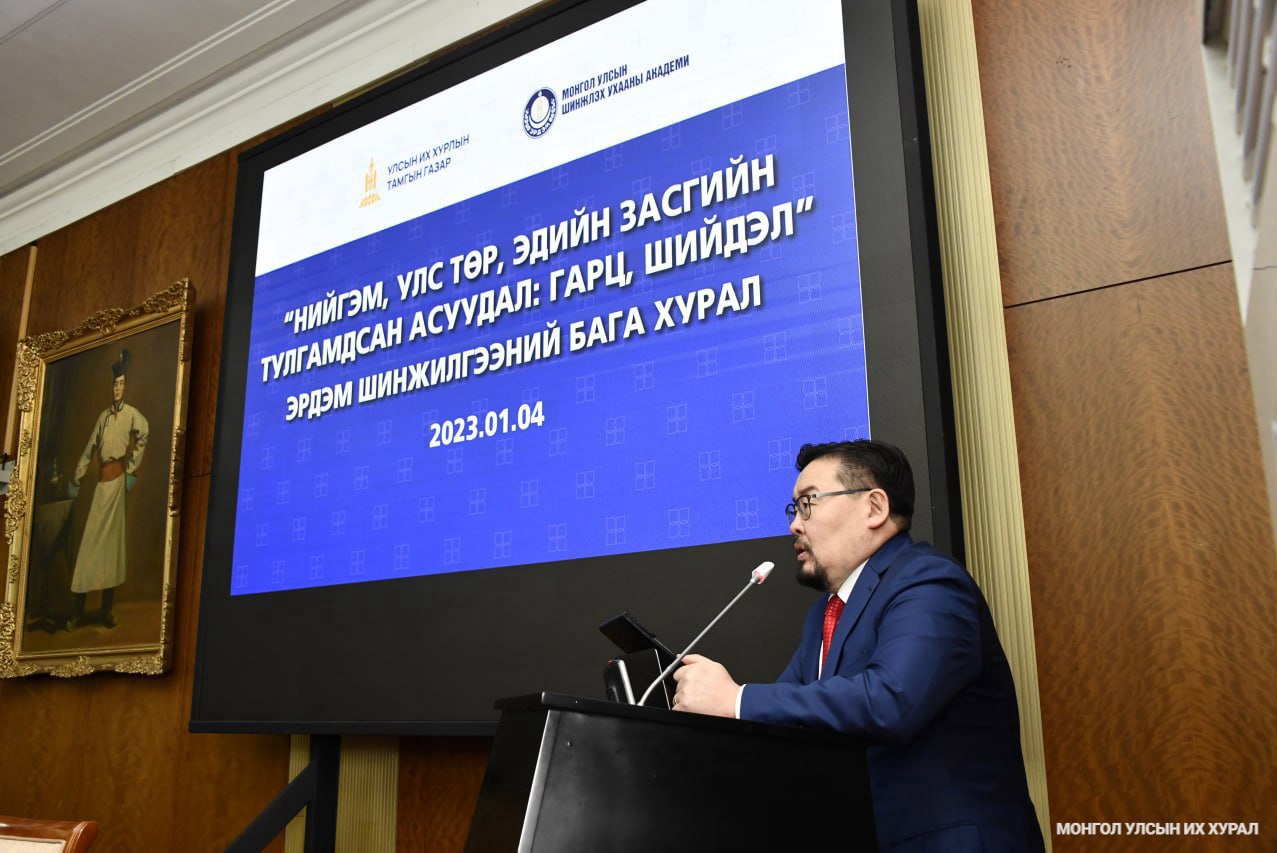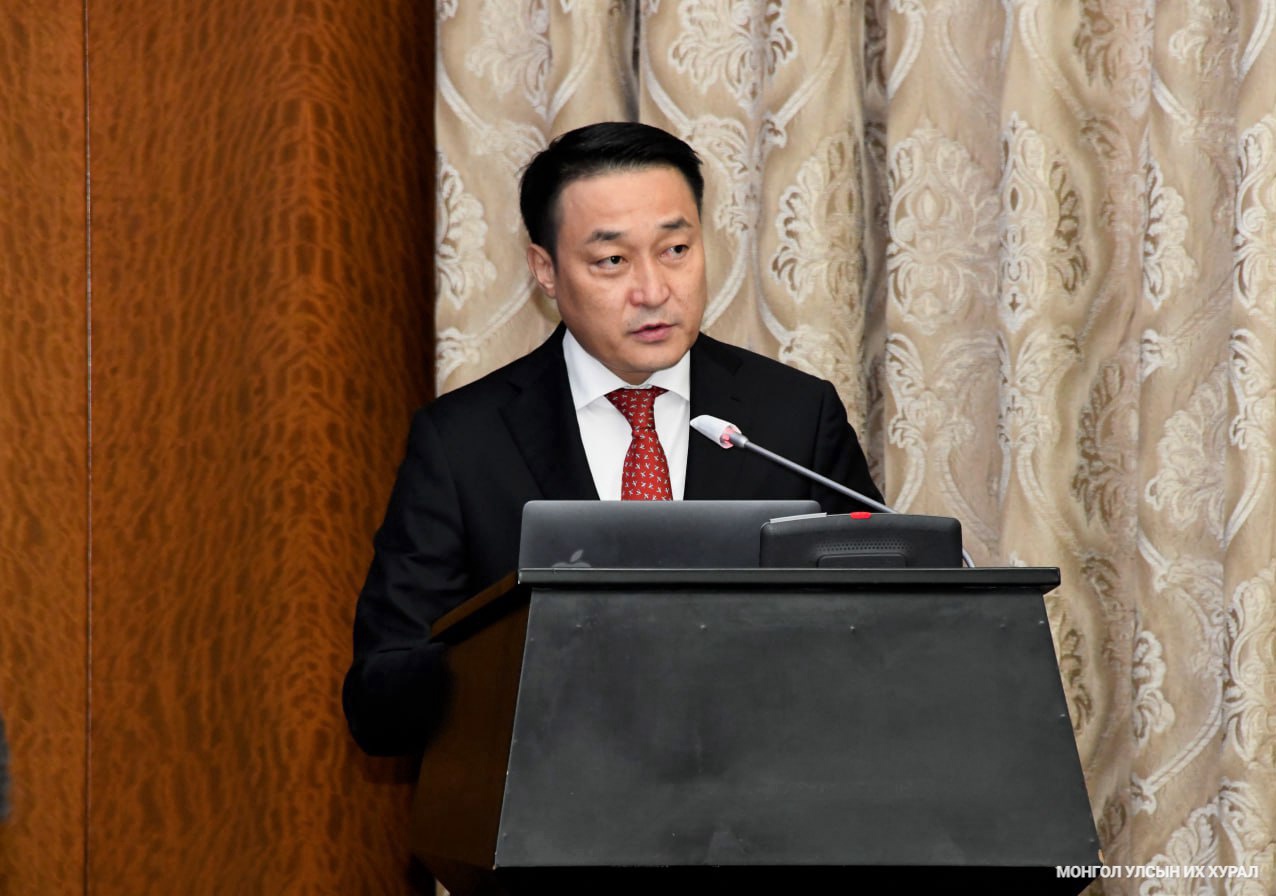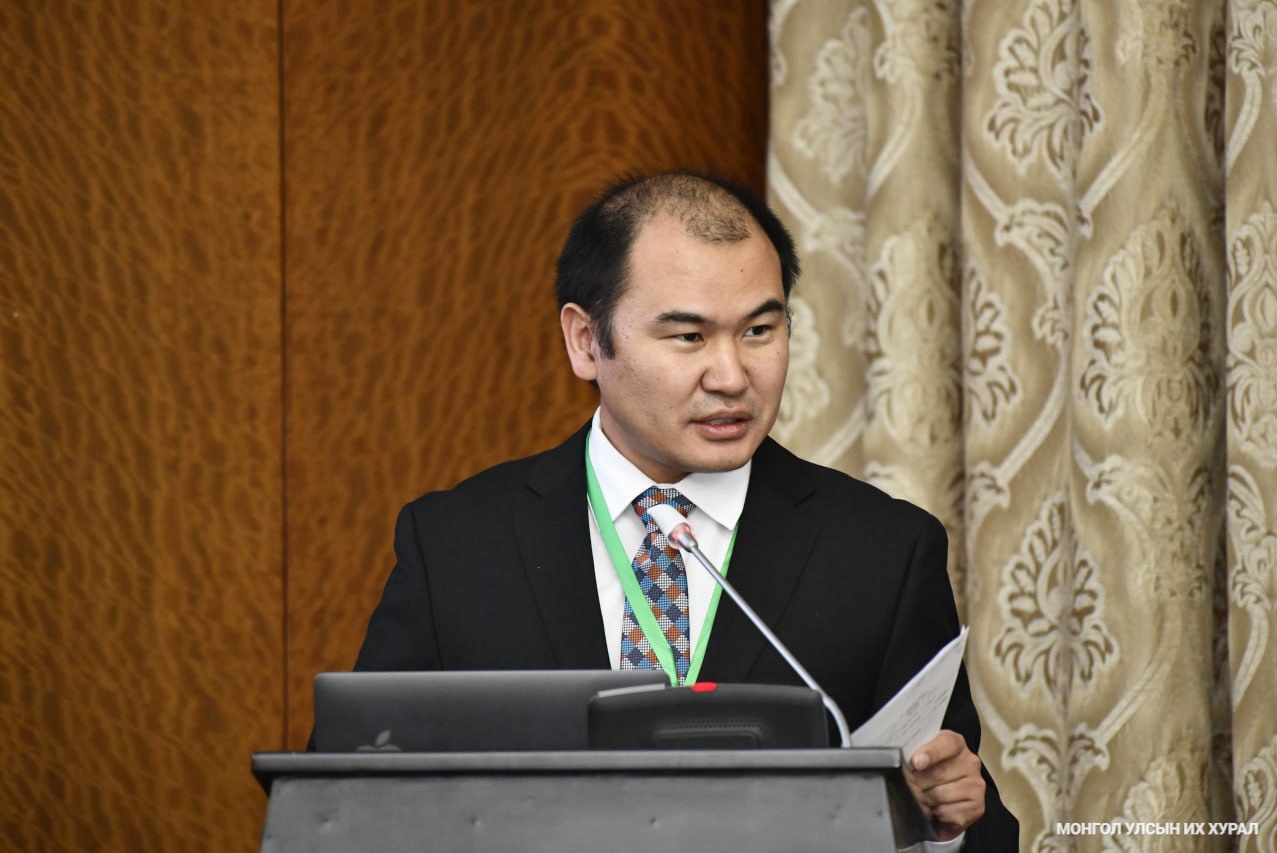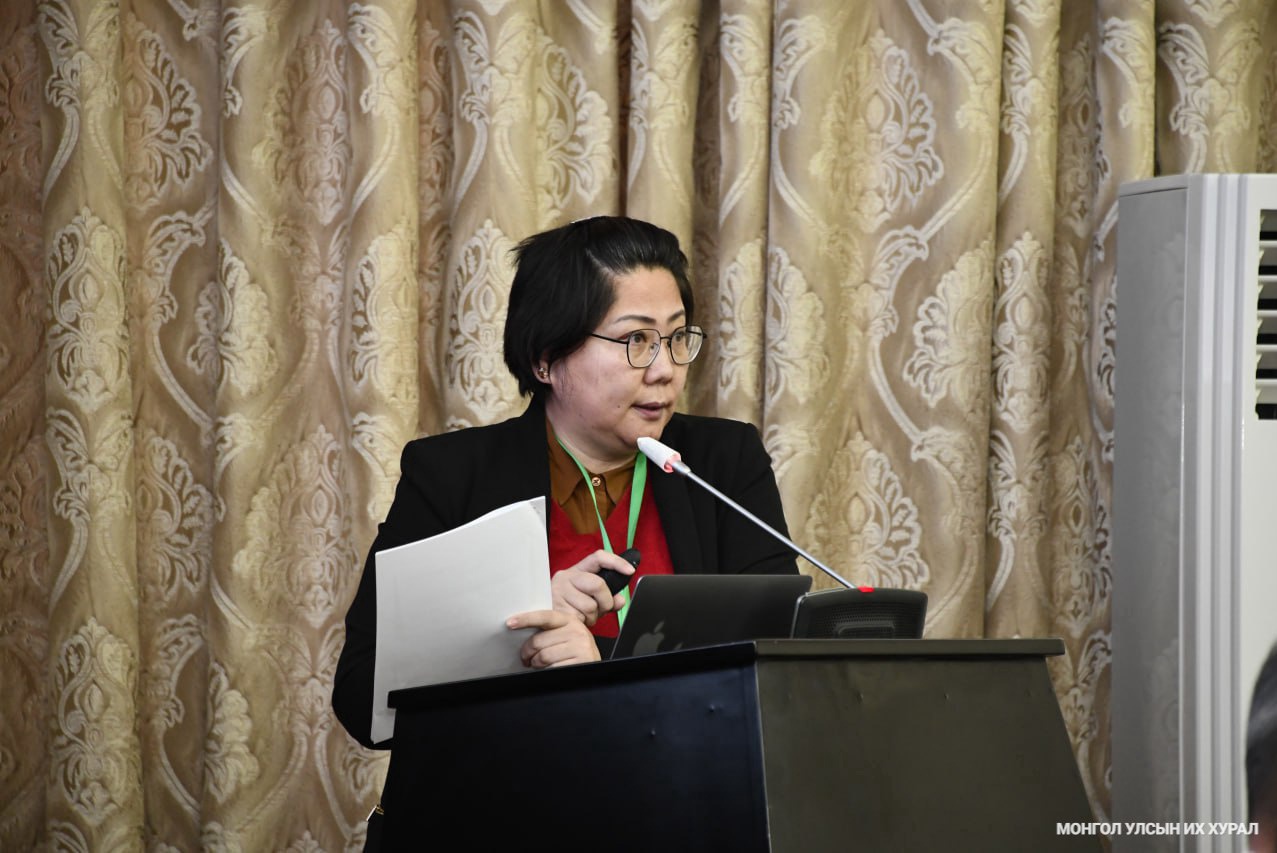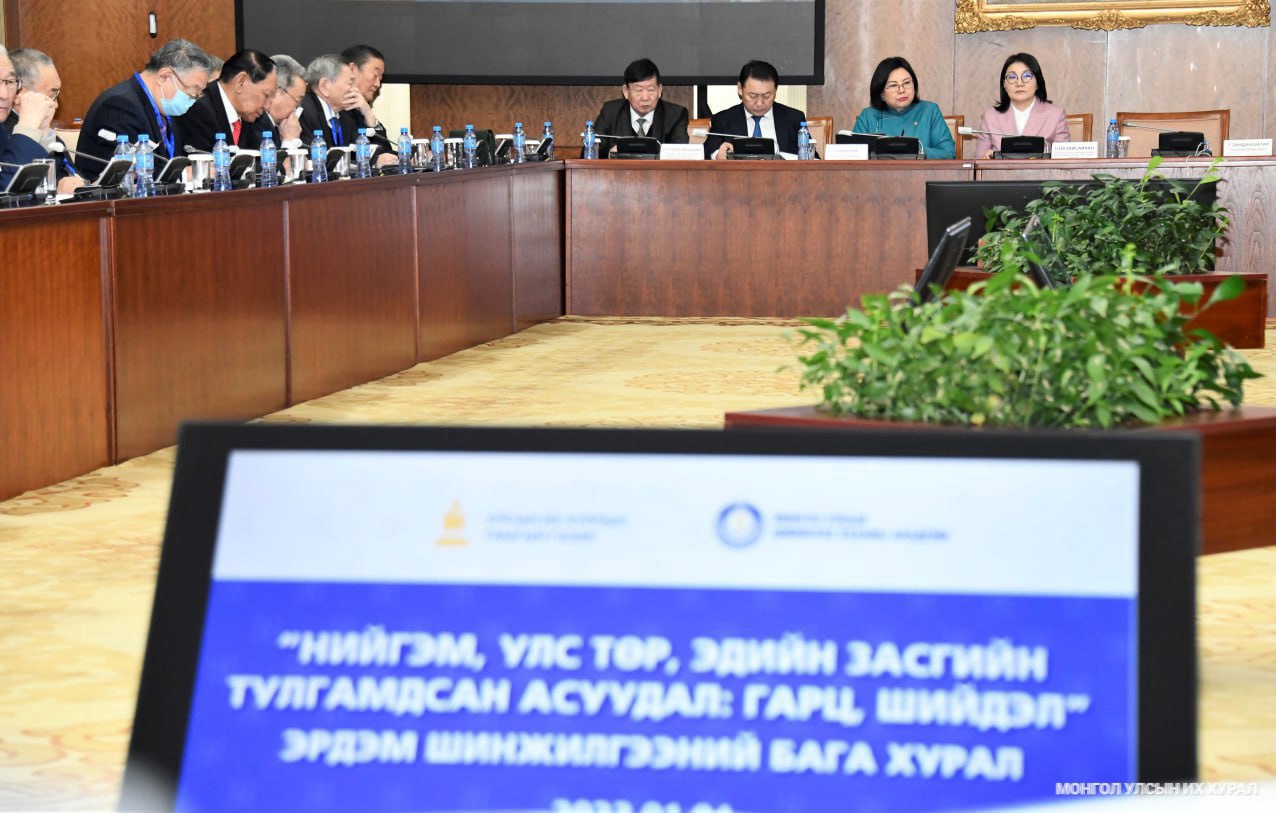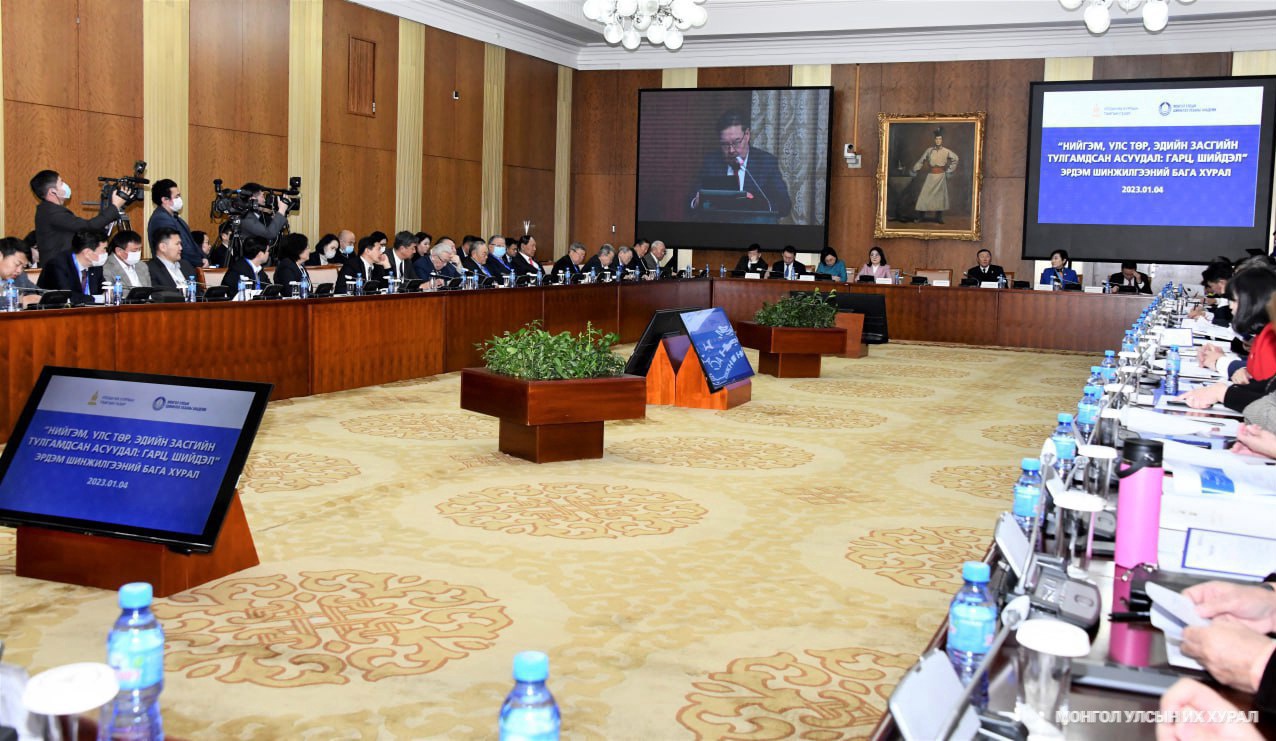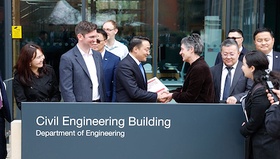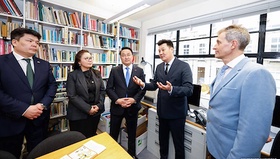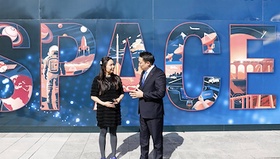The members of the State Great Hural and government, state officials, researchers, university professors, lecturers, representatives of civil society and private sector are participating at the academic conference on "Social, Political and Economic Challenges: Solutions" held today (January 04, 2023) in the State Palace. The conference, which is being held as part of the "Let's deliberate and decide" the deliberative polling, which is being prepared to be held soon, aims to identify, prioritize, solve the country's socio-economic issues from a scientific point of view, and determine solutions.
In his opening speech at the academic conference, Mr. G.Zandanshatar, the Chairman of the State Great Hural, noted that a ten package of laws are to be approved and implemented within the framework of "New Revival - Legal Reform" and said, "It is necessary to fully revive and implement the 2019 amendments to the Constitution. Accordingly, more than 30 major laws have been proposed for revisions and 13 laws have not been approved yet.
Mr. Chairman emphasized, for example, the draft Presidential law, the draft law on Sovereign Wealth Fund, the draft law on Political Parties and the draft law on Political Party Financing have not yet been submitted. Once approved, these laws have important implication for strengthening checks and balance between state powers and guaranteeing parliamentary democracy and the people's right to rule”.
In addition, he said, "once the rule of law and accountability system prevails in Mongolian government and being fairly implemented or in short words, once the rule of law prevails, the people's trust in the government will be restored. The cost of lost opportunities due to the concentration and congestion of Ulaanbaatar alone is estimated at 3.8 trillion MNT per year. A city citizen spends an average of 30 days a year in traffic jams, losing precious time. We hope that today's meeting will reveal many new ways and solutions to the issue of how we can unlock this blocking factors.
The lock that has hindered development through new spatial planning, what leverage of law, law and policy to use, in what order, and how to bring them to life. If Mongolia has a wealth of natural resources, it must have a wealth fund established. In recent years, the trend of dividing society into two groups: the super-rich minority and the poor and the significant majority sliding into poverty has been intensified. He warned that the possibility of increasing middle class, which is the main pillar of the country's development is still limited. As summing, he reminded the academics that they have the honorable responsibility to determine the direction of the country's revitalization, and that they have the noble task of solving important problems with the people and wished them success in the activities of the conference.
Then Mr. D.Amarbayasgalan, the Minister of Mongolia and the Chairman of the Cabinet Secretariat gave a speech. He pointed out that the distortions of democratic governance, the distribution of state power, especially the imbalance of reciprocal control between legislative and executive powers have created today's society, Mongolia as a democratic country with a parliamentary governance. However, today the parliament has turned into a representative body of the ruling class rather than a citizens’ representative body. He said that representatives of all social groups such as non-members of political parties, those with average or below-average income and those with disabilities could not be elected. He asked the participants of the conference to scientifically discuss the mistakes of the past 30 years of the democratic Constitution and make suggestions and conclusions for defining the next 30 years.
The first keynote speech of the academic conference was given by the director of the Institute of Constitutional Law of the National University of Mongolia, PhD. O.Munkhsaikhan. In his speech entitled "Problems in the relationship between politics and governance: Justice", he said that a unicameral parliament is suitable in a unified, republican, small-population, homogenic nation like Mongolia. "The Constitution of Mongolia is doing its job well in terms of ensuring the distribution of powers and check and balance." It has been about two years since the 2019 constitutional amendment and therefore it is too early for its evaluation. In other words, he concluded that there is no need for further amendments to the Constitution or the time has not come yet.
The second keynote speech was delivered by Mrs. A.Altanzul, PhD, Associate Professor, Head of a Department of the Academy of Management, on the topic of "Accountability System and Demand for Justice". As part of her research, PhD. A.Altanzul analyzed the content and roles of more than 330 laws. She determined that the provisions of the legislation regulating the responsibility and requirements for elected and appointed officials are less than those of other public servants. She also mentioned that since elected officials receive mandates from citizens directly, there is an idea that making special requirements contradicts the principles of representative democracy. Therefore, she believes that it is necessary to specify the moral norms through detailed laws, such as making declarations of expenses in addition to the asset reports for elected and appointed officials. Also, for the accountability system, the responsibility to be assigned to political officials is not clear.
Finally, she noted that the punishments imposed on high-ranking political officials for corruption, conflict of interests and violations is twice less than that imposed on other public servants. The law must be adopted to ensure public participation and legalizes leadership in an open manner in the nomination and selection process of elected and appointed officials. This is to limit the opportunities for officials who make decisions in violation of law by eliminating the coordination of policies and laws and regulations of the government branches. It was concluded that it is necessary to adopt a basic law that provides for the participation of public organizations in improving voter education.
The participants of the conference asked questions from the presenters and discussed the constitutional and governance reforms, theoretical and international advanced experiences and trends in this regard. D.Sodnom, a former Prime Minister of Mongolia, J.Gombojav, a former Deputy Chairman of the State Great Hural, B.Lkhagvajav, a former president of the Chamber of Commerce, D.Lamjav, the "citizen", H.Bat-Yalalt the head of NGO "Citizens' Fair Court" have expressed their disagreement with the organization of the conference and the presentation of PhD. O.Munkhsaikhan and his conclusions.
After break, Dr. M.Altanbagana, head of the Institute of Geography and Geo-Ecology of Academy of Sciences of Mongolia, gave a speech on the topic of "Decentralization and Congestion Reduction: New Planning of Spaces." In his speech, he mentioned that in the past 30 years, the organization of social and economic spaces took place spontaneously. All the attractions were provided in the city of Ulaanbaatar alone and Mongolia has not built a second city where citizens can live and develop.
He pointed out that the situation will become more difficult if we do not plan the future direction of regional development and implement policies aimed at decentralization. Scientists of the Institute of Geography and Genecology of the Academy of Sciences have identified 11 vertical and 6 horizontal axes after 2020 and considered them to be the most optimal option. By this scenario, Mongolia will have five big cities that can compete with Ulaanbaatar. They will be the cities that attracts power at the regional level. He mentioned in his speech that in this way economic resources will be created at 13 points, as well as seven tourism zones and seven corridors along the border.
According to the 2019 Constitutional amendment, it said "the legal basis of self-governing and organization of the cities and villages with state and local ranks in administrative and territorial units shall be established by law. It was also mentioned that in the revision of the law on administrative and territorial units of Mongolia and their management, it is necessary to implement the legal framework for transferring cities and villages status based on their characteristics.
At the end of the morning session, PhD. B.Otgontugs, professor of Department of Economics of NUM, gave a speech on the topic "Wealth fund: fair and accessible distribution". Presenting the study of good practices of other countries where wealth funds have been established and research on income and capital benefits and how to properly set up funds. She gave examples of how to optimally conduct fund spending and distribution and what experiences have been accumulated in this regard. The wealth fund has the forms of accumulation, stabilization and development. As defined by the Santiago principles, it is a special purpose investment coordination fund owned by the government. In this regard, she argues that our country has gained a certain amount of experience and efforts based on previous research and analysis.
It is possible to reduce the total national debt, stabilize economic growth and dynamically distribute wealth in the years 2046-2050 if the governance, management and handing of the funds are correct. It was emphasized that the legal regulation of already established target funds should be coordinated with the Law on Wealth Funds, as three different functions of accumulation, investment, and distribution cannot be performed by one fund. It was recommended that the foundation to be established by creating a legal and business environment for fair distribution of fund's wealth, capital allocation and risk management, and a DIGNAR (Debt, Investment, Growth, Natural Resources) planning model, control mechanism, asset management mandate, governance and reporting transparency.
The academic conference continued in the afternoon with panel sessions. The panel for politics and governance was moderated by Mr. O.Mashbat, the director of the Institute of Security Studies and participated by Dr. O.Khatanbold, the head of the department of the Institute of Philosophy of the Academy of Sciences and Dr. S.Molor-Erdene, a philosopher.
The panel on accountability system and justice was moderated by Dr. Professor B.Purevsuren, the director of the Institute of Philosophy of the Academy of Sciences, Dr. Ch.Tamir, the director of the Department of Social Sciences of the National University of Science and Technology, Dr. and Associate Professor Ts.Batceren the head of the Department of Humanities and others engaged in discussions.
The third session on the issue of spacial planning and regional development was moderated by Dr. Ch.Khaschuluun, and Dr. and Associate Professor B.Narantulga, the head of the Department of the Academy of Management, and Dr. M.Buyandelger, the director of the Capital Policy Analysis and Research Center were among the participants.
The fourth session on the wealth fund and its fair and accessible distribution was moderated by doctor of science, academics Mr. A.Bakei, director of Agricultural Economy and Innovation Development Center and participated by Mr. B.Batdavaa, head of the National Statistics Office and researcher Dr. M.Naidankhuu.

 Eng
Eng  Монгол
Монгол